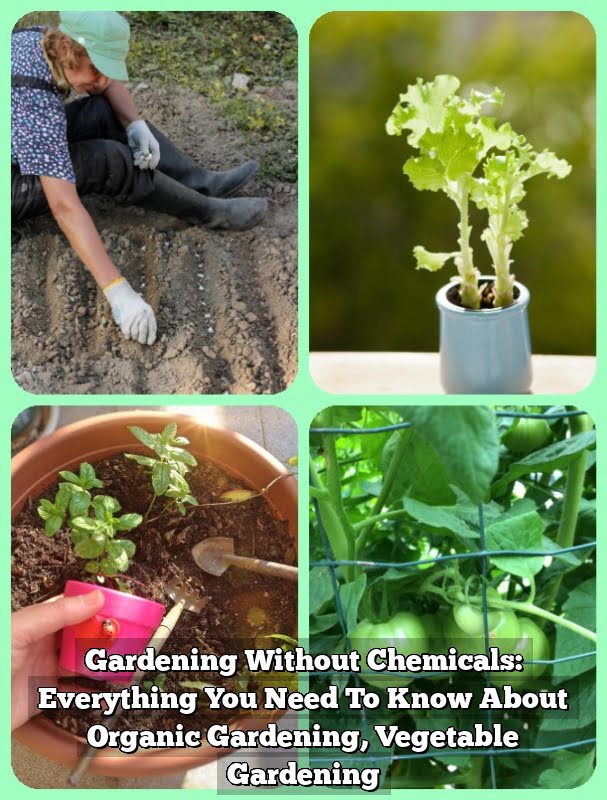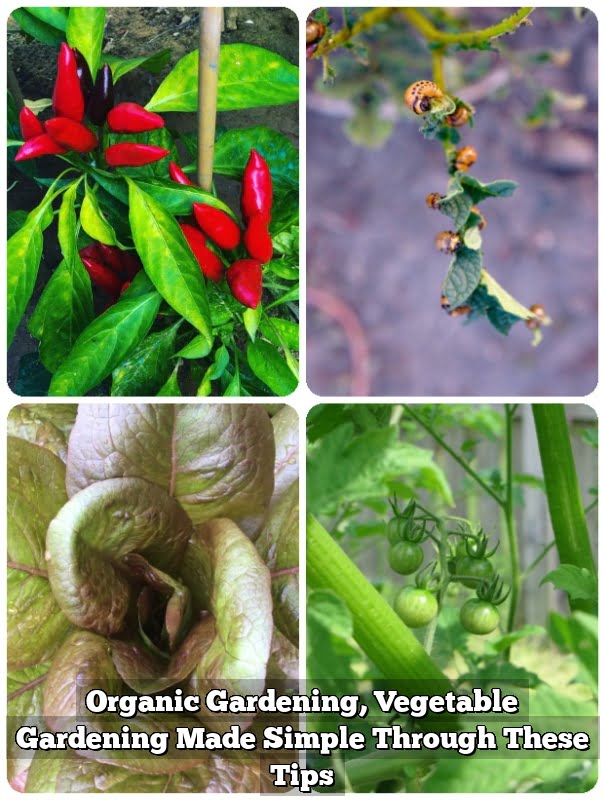Are you interested in starting a new venture into Newfoundland vegetable gardening? With its unique climate and soil conditions, growing your own vegetables in Newfoundland can be both challenging and rewarding. From choosing the right vegetables to dealing with pests and diseases, this article will guide you through the process of creating a successful vegetable garden in Newfoundland.
Newfoundland’s climate and soil conditions play a significant role in determining the success of vegetable gardening. Understanding these factors is crucial for selecting the right vegetables and implementing best practices to ensure a thriving garden. This article will provide insights into the specific challenges and opportunities that come with gardening in Newfoundland, helping you make informed decisions when planning and maintaining your garden.
In this article, we’ll explore the best practices for preparing and planting a vegetable garden in Newfoundland, from soil preparation to choosing the right planting time. Whether you’re a novice gardener or have years of experience, there’s always something new to learn about optimizing your vegetable garden for Newfoundland’s unique environment.
Join us as we delve into the world of Newfoundland vegetable gardening and discover how you can grow an abundance of fresh, healthy produce right in your own backyard.
Climate and Soil Conditions in Newfoundland for Vegetable Gardening
Newfoundland is known for its unique climate, with cool summers and mild winters, making vegetable gardening a bit more challenging compared to other regions. The soil conditions in Newfoundland can also vary, from acidic to alkaline soils, which can impact the success of a vegetable garden. Understanding the climate and soil conditions is essential for successful vegetable gardening in Newfoundland.
The cool summers in Newfoundland mean that the growing season for vegetables is shorter compared to other regions. Frost can occur even in the summer months, so it’s important to choose vegetables that are well-suited for this type of climate.
Additionally, the soil conditions can vary widely across the province, so it’s crucial to test the soil and make any necessary amendments before planting a vegetable garden. Adding organic matter such as compost can help improve soil structure and fertility.
When choosing vegetables for a Newfoundland garden, it’s important to select varieties that are cold-hardy and have a shorter growing season. Vegetables such as carrots, potatoes, turnips, kale, and lettuce tend to perform well in Newfoundland’s climate. It’s also important to consider factors such as sunlight and wind exposure when planning a vegetable garden in Newfoundland.
In order to have a successful vegetable garden in Newfoundland, it’s important to pay attention to the unique climate and soil conditions of the region. By choosing the right vegetables and preparing the soil properly, gardeners can overcome these challenges and enjoy a bountiful harvest of fresh produce from their Newfoundland vegetable gardens.
Choosing the Right Vegetables for Newfoundland’s Unique Climate
Newfoundland’s unique climate presents both challenges and opportunities for vegetable gardeners. When choosing which vegetables to grow in this region, it is essential to consider the shorter growing season and cool, moist conditions. Here are some vegetables that are well-suited for Newfoundland vegetable gardening:
- Potatoes: Potatoes are a staple crop in Newfoundland and thrive in the cool, moist climate. Varieties such as Yukon Gold and Kennebec are popular choices for Newfoundland gardeners.
- Carrots: Carrots are another vegetable that does well in Newfoundland’s soil and climate. They can be planted early in the season and harvested later in the fall.
- Cabbage: Cabbage is a hardy vegetable that can withstand the cooler temperatures of Newfoundland. It is an excellent choice for those looking to grow their own coleslaw ingredients.
- Broccoli: Broccoli is a cold-hardy vegetable that can be successfully grown in Newfoundland. It thrives in the cooler temperatures of spring and fall.
In addition to these vegetables, other cold-hardy crops like kale, Brussels sprouts, and turnips can also be grown successfully in Newfoundland. When selecting vegetables for your garden, it is crucial to choose varieties that have a shorter maturity period to ensure a successful harvest before the frost sets in.
By carefully choosing the right vegetables for Newfoundland’s unique climate, gardeners can set themselves up for a bountiful harvest despite the challenges of the region’s weather patterns.
Best Practices for Preparing and Planting a Vegetable Garden in Newfoundland
When it comes to preparing and planting a vegetable garden in Newfoundland, there are several best practices to keep in mind to ensure a successful harvest. The unique climate and soil conditions of Newfoundland require careful attention and planning in order to create a thriving garden. In this section, we will explore the essential steps for preparing and planting a vegetable garden in Newfoundland.
Soil Preparation
One of the most crucial aspects of preparing a vegetable garden in Newfoundland is ensuring that the soil is suitable for growing healthy plants. Newfoundland’s soil can often be acidic, so it’s important to test the pH levels and make any necessary adjustments with lime or other soil amendments. Adding organic matter such as compost or well-rotted manure can also improve the soil structure and fertility, providing essential nutrients for plant growth.
Choosing the Right Location
Selecting the right location for your vegetable garden is key to its success. Choose a spot that receives ample sunlight, as most vegetables thrive in full sun. Additionally, consider factors such as access to water sources and protection from strong winds, which can impact plant growth. Take into account any potential obstacles such as trees or buildings that could shade your garden during certain times of day.
Planting Considerations
When it comes to planting your vegetables, it’s important to consider factors such as spacing, depth, and timing. Follow recommended spacing guidelines for each type of vegetable to ensure they have enough room to grow without competing for resources. Plant seeds at the appropriate depth and time them according to Newfoundland’s short growing season.
For transplants, handle them with care and acclimate them gradually to outdoor conditions before planting them in the garden. By following these best practices for preparing and planting a vegetable garden in Newfoundland, you can set yourself up for a bountiful harvest despite the region’s unique climate challenges.
Overall, by carefully considering factors like soil preparation, choosing the right location, and proper planting techniques suited for Newfoundland’s climate conditions makes it possible to establish a successful vegetable garden despite Newfoundlands’ unique environment – found important prior ensuring an abundant harvest regardless of anything before mentioned challenges.
Tips for Maintaining a Healthy Vegetable Garden in Newfoundland
Maintaining a healthy vegetable garden in Newfoundland requires ongoing care and attention, especially given the unique climate and soil conditions of the region. Here are some essential tips for keeping your vegetable garden thriving in Newfoundland:
1. Regular watering: Due to the cool and moist climate of Newfoundland, it’s important to monitor the moisture levels in your soil. Be sure to water your vegetable garden regularly, especially during dry periods, to ensure that your plants have adequate hydration.
2. Fertilizing: Given the potentially acidic nature of Newfoundland’s soils, it’s crucial to fertilize your vegetable garden appropriately. Consider using organic fertilizers or compost to enrich the soil and provide essential nutrients for your crops.
3. Weed control: In order to maintain a healthy vegetable garden in Newfoundland, it’s essential to stay on top of weed management. Regularly inspect your garden for invasive weeds and remove them promptly to prevent competition for resources with your vegetables.
4. Mulching: Applying a layer of mulch around your vegetable plants can help conserve moisture, suppress weeds, and regulate soil temperature – all crucial factors for maintaining a healthy garden in Newfoundland’s variable climate.
5. Disease prevention: Keep an eye out for signs of disease in your vegetable plants and take proactive measures to prevent their spread. This may involve proper spacing of crops, promoting good air circulation, and practicing crop rotation.
By following these tips for maintaining a healthy vegetable garden in Newfoundland, you can maximize the success of your gardening efforts and enjoy a bountiful harvest of fresh, homegrown produce within this unique Canadian province.
Dealing With Pests and Diseases in Newfoundland Vegetable Gardens
Pests and diseases can pose a significant challenge to successful vegetable gardening in Newfoundland. The cool, damp climate of the province creates an environment where various pests and diseases can thrive. It is essential for gardeners to be proactive in preventing and managing these issues in order to maintain a healthy and productive garden.
One of the best strategies for dealing with pests and diseases in Newfoundland vegetable gardens is practicing good garden hygiene. This includes regularly removing any dead or diseased plant material, as well as keeping the garden free of weeds, which can harbor pests. In addition, rotating crops from year to year can help prevent the buildup of soil-borne diseases.
In terms of pest management, there are several environmentally friendly methods that can be effective in controlling pests without resorting to harsh chemicals. For example, introducing beneficial insects such as ladybugs or lacewings can help keep pest populations in check. Additionally, physical barriers like row covers or netting can be used to protect plants from common pests like aphids or caterpillars.
| Dealing With Pests | Managing Diseases |
|---|---|
| Practice good garden hygiene | Rotate crops yearly |
| Use environmentally friendly pest control methods | Mulch to prevent soil-borne diseases |
| Introduce beneficial insects | Utilize resistant plant varieties when possible |
Harvesting and Preserving Vegetables in Newfoundland
When it comes to harvesting your vegetables in Newfoundland, timing is key. The short growing season means that you need to keep a close eye on your plants and harvest them at the right time to ensure peak flavor and quality. As a general rule, most vegetables should be harvested when they are at their peak ripeness, which can usually be determined by their color, size, and firmness.
Once you have successfully harvested your vegetables, it’s important to know how to preserve them properly so that you can enjoy them throughout the year. One popular method of preserving vegetables in Newfoundland is through canning. Canning allows you to store your vegetables for an extended period of time without losing their flavor and nutritional value. Another option is freezing, which is a convenient way to preserve many types of vegetables for months at a time.
Many vegetable gardeners in Newfoundland find themselves with an abundance of produce during the peak harvesting season. If this sounds like you, consider sharing your harvest with friends, family, or even local food banks. Not only does this help reduce food waste, but it also allows others to enjoy the fresh flavors of locally grown produce. Plus, it’s always rewarding to share the fruits (or vegetables) of your labor with others.
Success Stories
Many people in Newfoundland have taken up the challenge of vegetable gardening, and some have experienced great success. One such gardener is Mary Johnson from St. John’s, who has been able to grow a wide variety of vegetables despite the region’s unpredictable weather. She attributes her success to careful planning, using raised beds to improve soil drainage, and choosing cold-hardy vegetables that can withstand the cooler temperatures.
Another successful gardener is Tom Murphy from Corner Brook, who has found innovative ways to extend the growing season in Newfoundland. He uses hoop houses and row covers to protect his crops from frost, allowing him to harvest fresh produce well into the fall. Additionally, he practices crop rotation and interplanting to maximize space and minimize the risk of disease.
In addition to these individual success stories, there are also community-based gardening initiatives making an impact in Newfoundland. The Community Garden Association of Newfoundland and Labrador has been instrumental in supporting local gardeners through education, resources, and networking opportunities. They have helped many aspiring vegetable gardeners overcome challenges specific to Newfoundland’s climate and soil conditions.
| Success Story | Location |
|---|---|
| Mary Johnson | St. John’s |
| Tom Murphy | Corner Brook |
Conclusion
In conclusion, vegetable gardening in Newfoundland offers a multitude of rewards and benefits for those willing to put in the time and effort. Despite the unique climate and soil conditions, gardeners in this region can enjoy the satisfaction of growing their own healthy and delicious produce right in their own backyard. The process of tending to a vegetable garden offers not only physical activity, but also a mental escape from the stresses of everyday life.
Furthermore, there is an undeniable sense of pride that comes with successfully nurturing plants from seedlings to bountiful harvest. Many gardeners find joy in knowing exactly where their food comes from and take pleasure in sharing their homegrown vegetables with friends and family. In addition, vegetable gardening provides an opportunity to connect with nature, learn new skills, and promote sustainable living practices.
As we have seen through the success stories shared by experienced growers in Newfoundland, the hard work put into vegetable gardening can result in an abundance of fresh produce that can be enjoyed throughout the growing season and preserved for enjoyment during the colder months. The satisfaction gained from overcoming challenges such as pests and diseases only adds to the sense of accomplishment felt by those dedicated to their gardens.
With dedication and perseverance, anyone can experience the incredible rewards that come with vegetable gardening in Newfoundland.
Frequently Asked Questions
What Vegetables Are Grown in Newfoundland?
In Newfoundland, a variety of vegetables are grown, including potatoes, carrots, turnips, cabbage, beets, and lettuce. Due to the shorter growing season and cooler climate, these cold-hardy vegetables thrive in the region.
When Can You Plant Vegetables in Newfoundland?
The best time to plant vegetables in Newfoundland is typically from late May to early June when the risk of frost has passed and the soil temperature has warmed up. This allows for a successful growing season before the first fall frost.
Can You Grow Broccoli in Newfoundland?
Yes, it is possible to grow broccoli in Newfoundland. Broccoli is a cold-weather crop that thrives in cooler temperatures, making it well-suited for the climate of Newfoundland. Planting broccoli in early summer can yield a good harvest before the first frost arrives.

If you’re looking to get into vegetable gardening, or are just looking for some tips on how to make your current garden better, then you’ve come to the right place! My name is Ethel and I have been gardening for years. In this blog, I’m going to share with you some of my best tips on how to create a successful vegetable garden.





